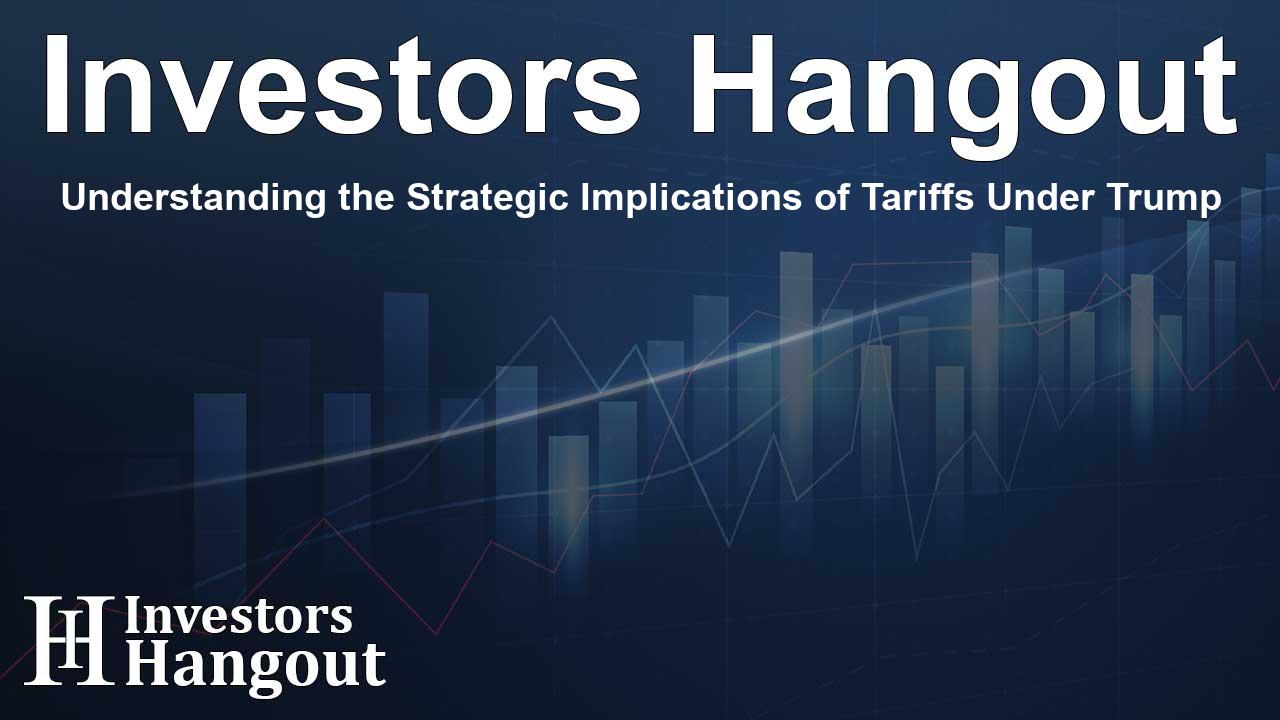Understanding the Strategic Implications of Tariffs Under Trump

Understanding the Strategic Implications of Tariffs Under Trump
As the world watches closely, the return of a previous U.S. administration ignites discussions regarding a possible trade war. With new tariff proposals by the Trump administration, many strategists and economists are speculating on the primary objectives behind these potential shifts in trade policy.
Tariffs as Negotiation Tools
Several experts assert that the hefty tariff increases proposed by Trump could function more as a negotiating chip rather than straightforward policy changes. Carie Li, a global market strategist, suggests this tactic aligns with Trump’s previous term strategies where tariffs were applied to compel other nations during negotiation processes.
Assessing Economic Impact
The economic consequences of such tariffs, particularly with significant percentages on imports from China and neighboring countries, raise concerns about their ripple effects on international trade. While intended to protect U.S. interests, these tariffs could inadvertently lead to increased costs and service disruptions in supply chains.
Reactions from Global Economists
The World Bank has projected that a 10% increase in U.S. tariffs could result in a 0.3 percentage point reduction in global economic growth by 2025. This effect emphasizes the interconnected nature of global markets and the potential for retaliatory actions from affected countries.
China's Countermeasures
China, facing potential economic pressure, is anticipated to respond by allowing its currency, the yuan, to depreciate. While this move could help sustain exports, it may simultaneously diminish investor confidence in the Chinese economy. Senior economists emphasize that the depreciation of the yuan presents a complex dynamic, balancing competitive pricing for exports against domestic economic stability.
The Future of International Trade Relations
As Trump’s administration navigates this complex landscape, the implementation of tariffs may not be as extreme as initially anticipated. Experts suggest that while the intention behind these tariffs may serve as a bargaining tactic, the actual execution might involve negotiations that lead to a more moderated approach.
Examining Broader Economic Trends
With a general rise in uncertainty surrounding global trade policies, economists are closely monitoring variations in currency valuation and global economic indicators. The interconnectedness of these systems highlights the importance of strategic planning for businesses and policymakers alike.
Frequently Asked Questions
What could be the impact of Trump's proposed tariffs on global trade?
Trump's proposed tariffs might initially disrupt trade but could also act as a negotiating strategy to garner favorable agreements.
How might China respond to U.S. tariffs?
China may allow its currency to depreciate as a countermeasure, which could help exports but potentially hurt overall investment confidence.
What are the projected economic outcomes of increased tariffs?
Experts project that U.S. tariffs, particularly on crucial trade partners, could slightly hinder global economic growth by reducing growth prospects significantly.
Why are tariffs considered negotiation tools?
Tariffs can be used to create leverage in trade negotiations, prompting other countries to come to the table for discussions on favorable terms.
What role does inflation play in tariff discussions?
Managing inflation remains a critical challenge as tariff implementations could lead to increased prices for consumers, complicating the economic landscape.
About The Author
Contact Kelly Martin privately here. Or send an email with ATTN: Kelly Martin as the subject to contact@investorshangout.com.
About Investors Hangout
Investors Hangout is a leading online stock forum for financial discussion and learning, offering a wide range of free tools and resources. It draws in traders of all levels, who exchange market knowledge, investigate trading tactics, and keep an eye on industry developments in real time. Featuring financial articles, stock message boards, quotes, charts, company profiles, and live news updates. Through cooperative learning and a wealth of informational resources, it helps users from novices creating their first portfolios to experts honing their techniques. Join Investors Hangout today: https://investorshangout.com/
The content of this article is based on factual, publicly available information and does not represent legal, financial, or investment advice. Investors Hangout does not offer financial advice, and the author is not a licensed financial advisor. Consult a qualified advisor before making any financial or investment decisions based on this article. This article should not be considered advice to purchase, sell, or hold any securities or other investments. If any of the material provided here is inaccurate, please contact us for corrections.
